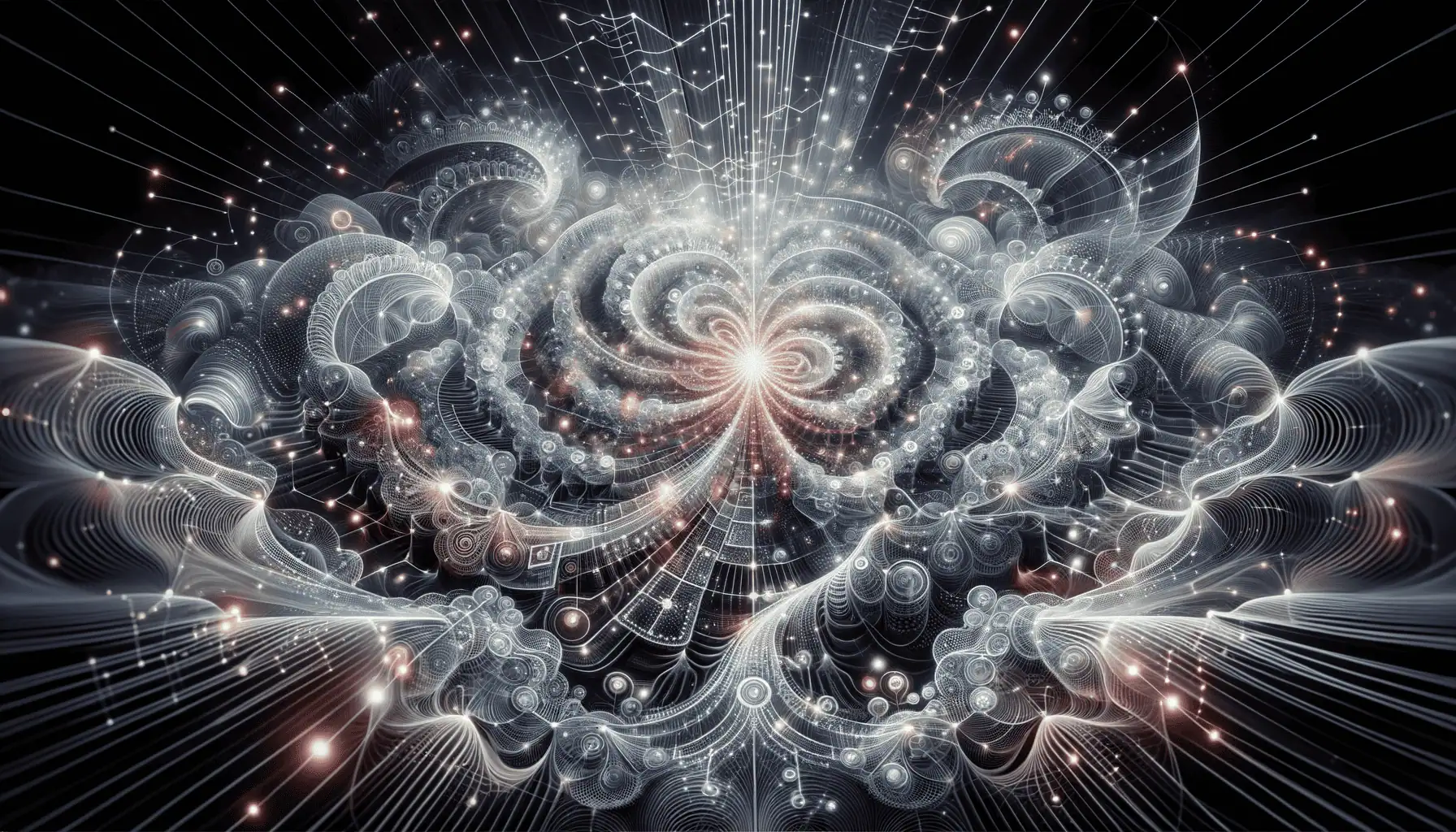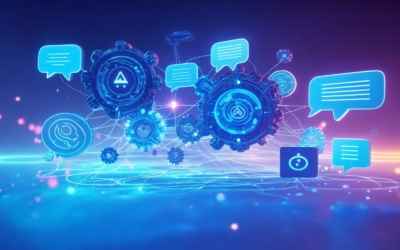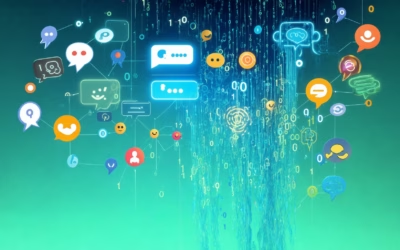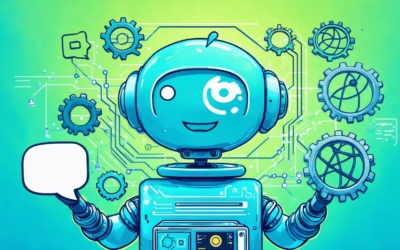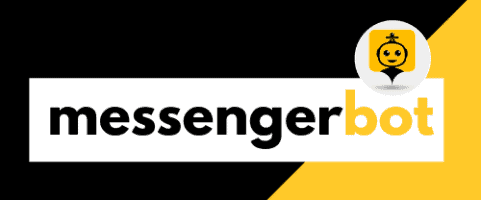In the fast-paced digital landscape, customer support is undergoing a revolutionary transformation, driven by the advent of AI-powered chatbot engines. These sophisticated artificial intelligence bots are reshaping how businesses interact with their customers, offering seamless, efficient, and personalized experiences. From IT service desk chatbots to advanced search bot technologies, the integration of chatbots artificial intelligence is setting new standards in customer service. As we delve into the world of chatbot engines, we’ll explore their evolution, capabilities, and the profound impact they’re having on search functionality and customer support. Whether you’re curious about ChatGPT, wondering which software is used to create chatbots, or seeking insights into the best chatbot engine for your business, this article will guide you through the exciting developments in this rapidly advancing field.
The Evolution of Customer Support
Customer support has undergone a significant transformation in recent years, with artificial intelligence (AI) playing a pivotal role in reshaping how businesses interact with their customers. As a leading provider of AI-powered communication solutions, we at Messenger Bot have witnessed firsthand the remarkable evolution of customer support technologies. The integration of AI chatbots has revolutionized the way companies handle customer inquiries, offering faster response times and more personalized experiences.
Is ChatGPT an AI engine?
ChatGPT is indeed an AI engine, specifically a large language model developed by OpenAI. It’s designed to understand and generate human-like text based on the input it receives. While ChatGPT itself is not a chatbot engine in the traditional sense, it represents a significant advancement in AI technology that has paved the way for more sophisticated conversational AI chatbots.
Unlike traditional rule-based chatbots, ChatGPT uses deep learning techniques to process and understand context, allowing for more natural and dynamic conversations. This technology has set new standards for what’s possible in AI-driven customer support, inspiring platforms like ours to push the boundaries of chatbot capabilities.
The rise of AI-powered chatbots
The emergence of AI-powered chatbots marks a significant milestone in the evolution of customer support. These intelligent virtual assistants have rapidly gained traction across various industries, offering businesses a powerful tool to enhance their customer service operations. At Messenger Bot, we’ve observed the transformative impact of AI chatbots on customer engagement and satisfaction.
AI chatbots leverage machine learning algorithms to continuously improve their performance, learning from each interaction to provide more accurate and helpful responses over time. This adaptive capability allows them to handle increasingly complex queries, reducing the workload on human support teams and enabling businesses to offer 24/7 support without increasing staffing costs.
The rise of AI-powered customer service bots has also introduced new possibilities for personalization in customer interactions. By analyzing customer data and conversation history, these advanced chatbots can tailor their responses to individual preferences and needs, creating a more engaging and satisfying support experience.
As the technology continues to evolve, we’re seeing an increasing number of businesses adopt AI chatbots as an integral part of their customer support strategy. From e-commerce to healthcare, these intelligent assistants are proving their worth by improving response times, increasing customer satisfaction, and driving operational efficiency.
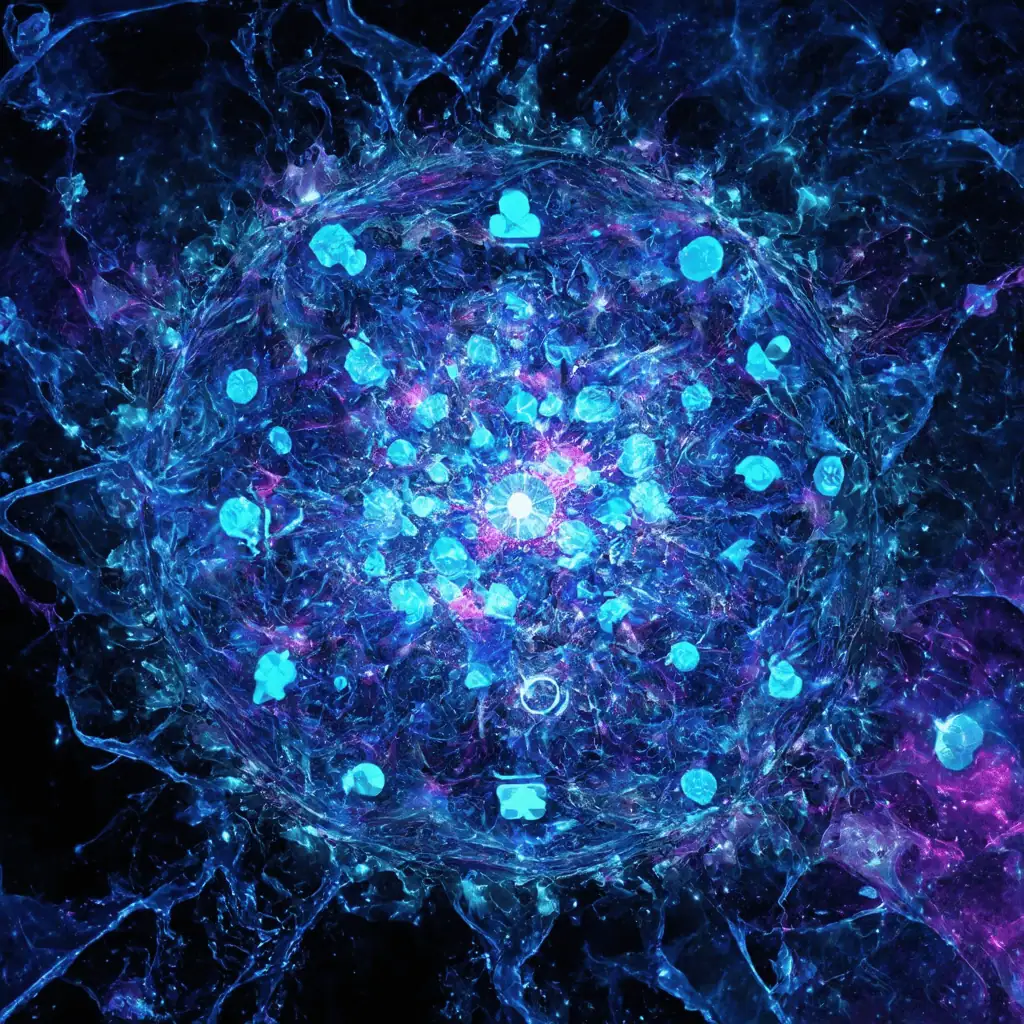
Understanding Chatbot Engines
Chatbot engines are the backbone of modern AI-powered conversational interfaces. These sophisticated systems utilize natural language processing (NLP) and machine learning algorithms to interpret user queries and generate appropriate responses. As businesses increasingly adopt AI chatbots to enhance customer interactions, understanding the underlying technology becomes crucial.
Chatbot engines have evolved significantly, from simple rule-based systems to complex AI-driven platforms capable of handling nuanced conversations. They now incorporate advanced features such as context awareness, sentiment analysis, and multi-language support, making them invaluable tools for businesses seeking to improve customer engagement and streamline operations.
Which chatbot did Elon Musk make?
Contrary to popular belief, Elon Musk did not create a specific chatbot. However, he co-founded OpenAI, the organization behind GPT (Generative Pre-trained Transformer) technology, which powers many advanced chatbots, including the renowned ChatGPT. While Musk is no longer directly involved with OpenAI, his initial contribution to the field of AI has had a lasting impact on chatbot development.
It’s worth noting that Musk has been vocal about the potential risks and benefits of AI technology, including chatbots. His insights have sparked important discussions about AI ethics and safety in the tech industry, influencing the development of responsible AI practices.
Exploring chatbot engine download options
For businesses and developers looking to implement chatbot solutions, several chatbot engine download options are available. These range from open-source frameworks to proprietary solutions offered by leading AI companies. Here are some popular choices:
- Rasa: An open-source machine learning framework for automated text and voice-based conversations.
- Dialogflow: Google’s natural language understanding platform for building conversational interfaces.
- Microsoft Bot Framework: A comprehensive platform for building and deploying intelligent bots.
- Messenger Bot: Our platform offers a sophisticated AI-driven chatbot engine that can be easily integrated into various messaging platforms and websites.
When selecting a chatbot engine, consider factors such as ease of integration, scalability, and customization options. It’s crucial to choose a solution that aligns with your specific business needs and technical capabilities. Many providers, including Messenger Bot, offer free trials or demos, allowing you to test the engine’s capabilities before committing to a full implementation.
As the demand for efficient customer service solutions continues to grow, chatbot engines are becoming increasingly sophisticated. By leveraging these powerful tools, businesses can enhance their customer interactions, automate routine tasks, and gain valuable insights into customer behavior. Whether you’re a small startup or a large enterprise, exploring chatbot engine options can be a game-changer for your customer engagement strategy.
III. Implementing Chatbot Solutions
Implementing chatbot solutions has become a crucial strategy for businesses looking to enhance their customer support and engagement. As a leading provider of AI-powered chatbots, we at Messenger Bot understand the importance of choosing the right software and engine for your specific needs.
A. Which software is used to create chatbot?
When it comes to creating chatbots, there are several software options available in the market. Some popular choices include:
1. Dialogflow: Developed by Google, this platform offers natural language processing capabilities and integrates well with various messaging platforms.
2. IBM Watson Assistant: Known for its robust AI capabilities, Watson Assistant is ideal for enterprises looking for advanced chatbot functionalities.
3. Messenger Bot: Our platform provides an intuitive interface for creating AI chatbots with advanced features like multilingual support and workflow automation.
4. MobileMonkey: This platform specializes in creating chatbots for Facebook Messenger and Instagram.
5. Chatfuel: Known for its ease of use, Chatfuel is popular among small businesses and marketers.
Each of these platforms offers unique features and capabilities, catering to different business needs and technical expertise levels. It’s essential to evaluate your specific requirements before choosing a chatbot creation software.
B. Best chatbot engine for businesses
Selecting the best chatbot engine for your business depends on various factors, including your industry, target audience, and specific use cases. Here are some top contenders:
1. Messenger Bot: Our AI-powered chatbot engine offers a comprehensive solution for businesses of all sizes. With features like automated responses, lead generation, and multilingual support, we provide a versatile platform that can adapt to various business needs.
2. Rasa: An open-source chatbot engine that allows for highly customizable solutions, ideal for businesses with specific technical requirements.
3. Botpress: This open-source platform offers a visual flow editor and natural language understanding capabilities, making it suitable for businesses looking for flexibility in their chatbot development.
4. Brain Pod AI: Their Multilingual AI Chat Assistant offers advanced conversational AI capabilities, making it an excellent choice for businesses looking to provide personalized customer experiences across different languages.
5. Pandorabots: Known for its AIML (Artificial Intelligence Markup Language) engine, Pandorabots is suitable for businesses looking to create sophisticated conversational interfaces.
When choosing the best chatbot engine for your business, consider factors such as ease of use, scalability, integration capabilities, and the level of AI sophistication required. At Messenger Bot, we offer a range of pricing options to suit different business needs, ensuring you can find a solution that aligns with your budget and requirements.
Remember, the success of your chatbot implementation largely depends on how well it aligns with your business goals and customer needs. It’s crucial to set up your chatbot correctly and continuously optimize its performance based on user interactions and feedback.
The Power of ChatGPT
As we dive deeper into the world of chatbot engines, it’s impossible to ignore the revolutionary impact of ChatGPT. This advanced AI model has transformed the landscape of conversational AI, setting new standards for what chatbots can achieve. At Messenger Bot, we’ve been closely following these developments to enhance our own chatbot solutions.
What is ChatGPT chatbot?
ChatGPT is an artificial intelligence chatbot developed by OpenAI. It’s built on a large language model trained on vast amounts of text data, allowing it to generate human-like responses to a wide range of prompts. Unlike traditional rule-based chatbots, ChatGPT uses advanced natural language processing to understand context and provide more nuanced and relevant responses.
The capabilities of ChatGPT extend far beyond simple question-answering. It can engage in creative writing, assist with coding, provide explanations on complex topics, and even help with problem-solving. This versatility has made it a game-changer in the world of AI chatbots, inspiring businesses to rethink their approach to customer service and engagement.
At Messenger Bot, we’ve integrated similar AI technologies to provide our users with powerful, context-aware chatbot solutions that can handle complex customer inquiries with ease.
Comparing ChatGPT to other AI chatbots
While ChatGPT has certainly made waves, it’s important to understand how it stacks up against other AI chatbots in the market. Here’s a brief comparison:
- Versatility: ChatGPT excels in its ability to handle a wide range of tasks, from creative writing to technical explanations. However, platforms like Messenger Bot offer more specialized features for business-specific needs, such as lead generation and customer support automation.
- Customization: While ChatGPT provides a powerful out-of-the-box solution, it lacks the level of customization that some businesses require. Our platform allows for tailored responses and workflows that align with your brand voice and specific customer needs.
- Integration: Many AI chatbots, including those powered by Brain Pod AI, offer seamless integration with existing business systems and social media platforms. This integration capability is crucial for creating a cohesive customer experience across all touchpoints.
- Multilingual support: While ChatGPT supports multiple languages, specialized chatbot engines like ours offer more robust multilingual capabilities, ensuring effective communication with a global audience.
As we continue to innovate in the chatbot space, we’re inspired by the advancements represented by ChatGPT. Our goal is to combine the best of AI technology with practical, business-focused features to provide the most effective chatbot solutions for our clients. Whether you’re looking to revolutionize your customer service or enhance your lead generation efforts, we’re here to help you harness the power of AI-driven conversations.
Revolutionizing Search with AI
As we delve into the world of AI-powered search engines, it’s clear that the landscape of information retrieval is undergoing a dramatic transformation. Our AI chatbot technology is at the forefront of this revolution, offering users a more intuitive and interactive search experience. Unlike traditional search engines that simply return a list of links, AI-powered search combines natural language processing with vast knowledge bases to provide more precise and contextual results.
AI search engine chat GPT: A game-changer
The introduction of AI search engine chat GPT has marked a significant milestone in the evolution of search technology. This advanced chatbot engine utilizes sophisticated language models to understand and respond to user queries with remarkable accuracy. By leveraging the power of GPT (Generative Pre-trained Transformer), these AI chatbots can engage in human-like conversations, offering more than just search results—they provide explanations, summaries, and even follow-up questions to clarify user intent.
One of the key advantages of AI search engines like ChatGPT is their ability to understand context and nuance in natural language queries. This means users can ask questions as they would to a human, without needing to formulate precise keyword combinations. For businesses, integrating an AI-powered customer service bot can significantly enhance user experience by providing instant, accurate responses to complex inquiries.
Bot search engine vs. traditional search
The comparison between bot search engines and traditional search reveals a stark contrast in user experience and efficiency. While traditional search engines like Google and Bing have dominated the market for years, the emergence of AI chatbots is challenging their supremacy.
Bot search engines, powered by artificial intelligence, offer several advantages:
- Conversational Interface: Users can interact naturally, asking follow-up questions and refining their queries in real-time.
- Personalized Results: AI can learn from user interactions to provide more tailored search results over time.
- Immediate Answers: Instead of sifting through links, users often receive direct answers to their questions.
- Multi-turn Queries: Complex questions that require multiple steps can be handled more effectively.
Traditional search engines, while still powerful, are often limited to keyword matching and link analysis. They excel at finding specific web pages but may struggle with nuanced queries or providing synthesized information from multiple sources.
The integration of chat bot search engine capabilities into existing platforms is becoming increasingly common. For instance, Microsoft’s integration of ChatGPT into Bing has sparked a new era of competition in the search engine market, prompting Google to accelerate its own AI initiatives.
As businesses look to stay ahead of the curve, incorporating a chatbot search engine into their digital strategy can provide a significant competitive advantage. Our platform offers cutting-edge AI chatbot solutions that can be seamlessly integrated into your website or customer service channels, enhancing search functionality and user engagement.
The future of search is undoubtedly AI-driven, with chatbot engines leading the charge. As these technologies continue to evolve, we can expect even more sophisticated and helpful search experiences that blur the line between search engines and intelligent digital assistants.
VI. Enhancing Customer Service with Chatbots
As a leading provider of AI-powered chatbot solutions, we’ve seen firsthand how chatbots are revolutionizing customer service. The integration of chatbot engines into customer support systems has led to significant improvements in response times, customer satisfaction, and operational efficiency.
Chatbots powered by advanced AI can handle a wide range of customer inquiries, from simple FAQs to more complex issues. This capability allows human agents to focus on high-value interactions that require empathy and complex problem-solving skills. By leveraging our AI chatbot features, businesses can provide 24/7 support, reduce wait times, and offer consistent service quality across all customer touchpoints.
One of the key advantages of using chatbots for customer service is their ability to learn and improve over time. As they interact with more customers, these artificial intelligence bots become more adept at understanding context, recognizing patterns, and providing accurate responses. This continuous improvement cycle ensures that the customer service experience gets better with each interaction.
A. IT service desk chatbot implementation
Implementing an IT service desk chatbot can significantly streamline support operations and enhance user experience. These specialized chatbots can handle a variety of IT-related tasks, such as password resets, software installations, and troubleshooting common technical issues.
When implementing an IT service desk chatbot, it’s crucial to:
1. Define clear objectives and use cases
2. Integrate with existing IT service management (ITSM) systems
3. Train the chatbot on your organization’s specific IT policies and procedures
4. Continuously monitor and refine the chatbot’s performance
By leveraging our easy-to-setup AI chatbot, IT departments can quickly deploy a powerful support tool that reduces the workload on human agents and improves overall service quality.
B. ServiceDesk Plus cost and benefits
ServiceDesk Plus, developed by ManageEngine, is a popular IT service management solution that offers chatbot functionality. While we don’t provide this specific product, it’s worth discussing its costs and benefits to give a comprehensive view of the market.
The ServiceDesk Plus cost varies depending on the edition and deployment model chosen. Prices typically range from $495 to $1,195 per technician per year for the cloud version, with on-premises options also available. It’s important to note that these prices can change, and it’s best to check with ManageEngine for the most up-to-date pricing information.
Benefits of using ServiceDesk Plus include:
1. Improved ticket management and resolution times
2. Enhanced self-service capabilities through its chatbot interface
3. Comprehensive asset management features
4. Customizable workflows and automation
While ServiceDesk Plus offers robust features, our Messenger Bot pricing provides a more cost-effective solution for businesses looking to implement AI-powered chatbots across multiple channels, including IT support. Our platform offers flexible pricing options that can be tailored to your specific needs, ensuring you get the most value for your investment.
When considering chatbot solutions for IT service desks, it’s essential to evaluate factors such as scalability, integration capabilities, and the level of AI sophistication. Our Messenger Bot platform excels in these areas, offering advanced natural language processing and machine learning capabilities that can significantly enhance your IT support operations.
By implementing an AI-powered chatbot for your IT service desk, you can expect to see improvements in first-contact resolution rates, reduced ticket volumes, and increased user satisfaction. These benefits translate into tangible cost savings and operational efficiencies that can help justify the investment in chatbot technology.
VII. The Future of Chatbot Technology
As we look ahead, the future of chatbot technology is brimming with exciting possibilities. The rapid advancements in artificial intelligence and natural language processing are paving the way for more sophisticated and capable chatbot engines. At Messenger Bot, we’re at the forefront of these developments, constantly innovating to provide cutting-edge solutions for businesses.
The evolution of chatbots is not just about improving existing functionalities; it’s about reimagining how businesses interact with their customers. From handling complex queries to providing personalized recommendations, the next generation of chatbots will be more human-like and intuitive than ever before.
A. Artificial intelligence bot advancements
The field of artificial intelligence bots is experiencing unprecedented growth and innovation. Here are some key advancements shaping the future of chatbot technology:
- Enhanced Natural Language Understanding: AI chatbots are becoming increasingly adept at understanding context, nuances, and even emotions in human language. This allows for more natural and meaningful conversations.
- Multi-modal Interactions: Future chatbots will not be limited to text-based interactions. They’ll be capable of processing and responding to voice, images, and even gestures, creating a more immersive user experience.
- Predictive Analytics: By leveraging machine learning algorithms, chatbots will be able to anticipate user needs and provide proactive support, enhancing customer satisfaction and engagement.
- Seamless Integration: AI bots will become more deeply integrated with various business systems, allowing for more comprehensive and efficient service across multiple channels.
These advancements are not just theoretical; they’re already being implemented in platforms like Messenger Bot’s AI-powered features, which are designed to provide businesses with state-of-the-art conversational AI capabilities.
B. Chatbot engines: What’s next?
The future of chatbot engines is set to revolutionize how businesses interact with their customers. Here’s what we can expect:
- Hyper-personalization: Chatbot engines will leverage big data and AI to provide highly personalized interactions, tailoring responses to individual user preferences and history.
- Emotional Intelligence: Next-generation chatbots will be able to detect and respond to user emotions, providing empathetic and context-appropriate responses.
- Autonomous Learning: Chatbot engines will continuously learn and improve from interactions, becoming more efficient and accurate over time without manual updates.
- Multilingual Capabilities: As global markets expand, chatbot engines will offer seamless multilingual support, breaking down language barriers in customer service.
- Integration with IoT: Chatbots will interface with Internet of Things (IoT) devices, enabling voice-activated controls and providing a unified hub for smart home and office management.
At Messenger Bot, we’re constantly working on incorporating these advancements into our platform, ensuring that our clients stay ahead of the curve in customer engagement technology.
The future of chatbot technology is not just about automation; it’s about creating more meaningful, efficient, and personalized interactions between businesses and their customers. As we continue to push the boundaries of what’s possible with AI and machine learning, the potential for chatbot engines to transform customer service and business operations is truly exciting.
To stay updated on the latest developments in chatbot technology and how they can benefit your business, be sure to check out our Messenger Bot tutorials and resources. The future of customer engagement is here, and it’s more intelligent, responsive, and human-like than ever before.

